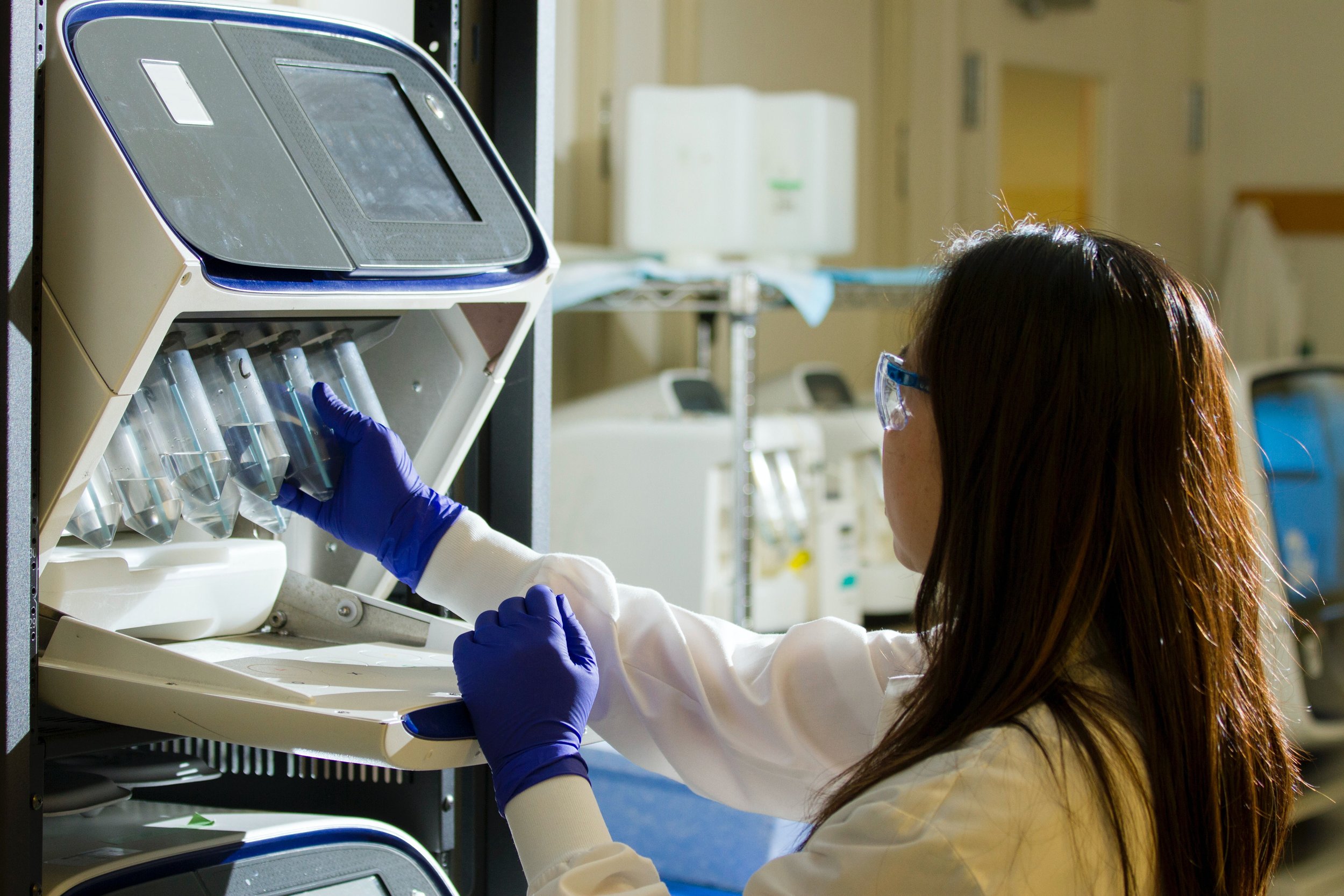Donating Tissues & Biopsies for Research
A biopsy is a sample of tissue or cells that has been removed from the body, primarily to diagnose or treat a disease. Occasionally, samples can be donated, with proper informed consent, for further scientific research. By studying donated healthy and diseased tissue samples, researchers learn different aspects of disease across the human population. These studies also allow researchers to address important questions about normal cell behavior and how cells transform and malfunction.
When conducting cancer research, scientists study biopsy cells to understand how cancer cells grow, spread, and change into different cell types. By studying these cells in the lab, researchers learn new ways to target and fight these cancerous cells. Tissue samples can also be used to make organoids, clumps of cells that model human organs, to better understand the biology of the tumor and to screen for new cancer drugs.
Biopsies from a variety of organs and tissues affected by a variety of diseases offer important insights into disease mechanisms and help identify potential future treatments.
What should be included in the informed consent form for donating my biopsy sample(s)?
Similar to donating cells for induced pluripotent stem cell research, discussions surrounding donating tissue samples from biopsies should begin with informed consent. Review these sample questions and discuss them with your doctor before signing informed consent forms. Biopsy-specific donation questions to consider include:
Will my clinical lab results be shared with the researchers? If so, how will my name and privacy information be handled?
Will the information about my sample’s genetic information or responses to drugs be shared with me or my medical team to improve my treatment options in the future?



